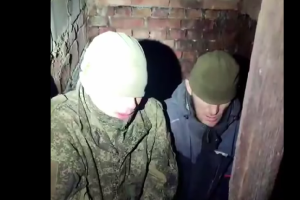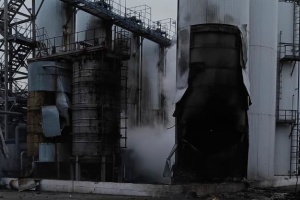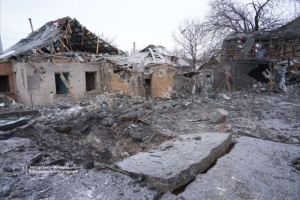
FSB regularly recruits Ukrainian refugees in Estonia
That's according to the published yearbook, Ukrinform says, referring to the national broadcaster ERR.
KAPO emphasizes that from the end of February to the end of 2022, 45 thousand of Ukrainian refugees applied for protection in Estonia. Conversations with them reveal the FSB's active activities against Ukrainians in Russia and the occupied territories.
"From filtration camps to interrogations at border checkpoints, Ukrainians are under increased attention, and among them are identified as hostile and dangerous to Russia. They are interrogated, their property is searched, their communications are monitored, and sometimes threats and violence are used," the yearbook says.
Further, the Security Police reports that it has been approached by both war refugees and Estonian residents, which helped to see the extent of Russian intelligence activities aimed at Estonia since the beginning of the full-scale invasion.
"For example, the FSB began systematically interviewing people who regularly visit Russia for work. At the border control, people are asked about their attitude towards Russia and the "special military operation" being conducted against Ukraine, as well as about the alleged persecution of Russians in Estonia. FSB agents film these conversations openly or secretly, or on a camera on the uniforms of border guards," revealed in the annual report of the KAPO.
According to the intelligence service, such activities are likely to become more intense in the future, as in wartime the Russian political and military leadership's need for information is higher than usual, and higher expectations are placed on intelligence.
Introducing the yearbook, KAPO Director General Arnold Sinisalu underlined that "the threat to Estonia's security from Russia has not changed."
According to Sinisalu, the context of the situation is that "Russia's resources are currently mainly spent on attacking Ukraine, but they have enough resources. Accordingly, Moscow has enough time and energy to threaten Estonia's security.
"In the yearbook, we cover the usual events in the field of constitutional order protection and counterintelligence, as well as changes in the cyber world... Russian influence activities cover many areas of life. The usual public propaganda attacks, manipulation and denigration of secret and classified information are so widespread in Estonia that many people have developed immunity," Sinisalu said.
According to the current legislation, the Estonian Security Police prepares an annual report on the results of the previous year's work.
Photo: Arvo Soosalu/flickr.com




